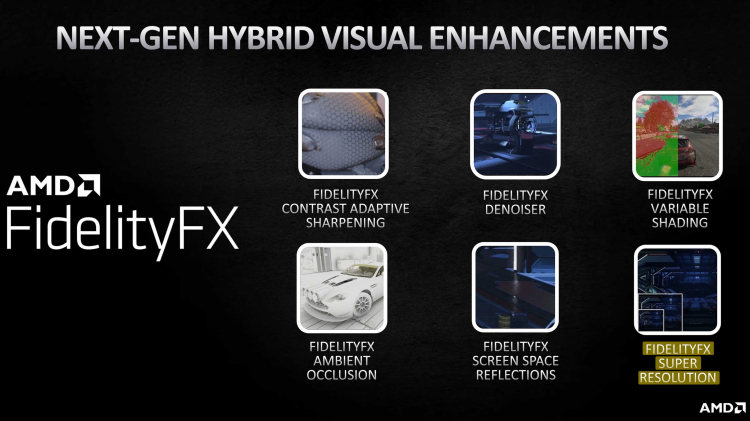AMD's Scott Herkelman recently confirmed to PCWorld on the Full Nerd podcast that FidelityFX Super Resolution (FSR) technology will be launching this year. He also shared some details. First of all, the technology, which acts as an analog of NVIDIA DLSS, is still in development: AMD still has a lot of work to do and it is still looking at the technologies at the heart of the scaling algorithm.

“We've made a lot of progress in our lab, but we promised the gaming community that the technology should be open, that it should work on all devices, and that game developer should embrace it. While the process is going well, we still have a lot of work to do, not only internally but also with our game development partners. We want to launch the technology this year. We believe that we can do this, but at the same time we still have a lot of work to do. We need to make sure that the image quality is high so that scaling at different resolutions can be supported. At the same time, the game developers cooperating with us are satisfied with what we are working on, ” - said Mr. Herkelman.
According to him, the official abbreviation for FidelityFX Super Resolution will be FSR: “This is probably one of the biggest software initiatives we are working on internally because we know how important it is not to hit too hard on GPU performance when enabling ray tracing. FSR (as the acronym will sound like) is a key project for us this year, but it will take a little longer. We're making good progress, but we still have some work to do. ”

Most curious of all, FSR, it turns out, may not be based on machine learning, unlike NVIDIA DLSS. Perhaps this is due to the absence of tensor kernels (blocks for accelerating computations associated with machine learning) in RDNA accelerators. However, AI stretching based on Microsoft DirectML does not need specialized blocks either.
“It is not necessary to use machine learning to accomplish the task — there are many ways to do it, and we are evaluating the effectiveness of different approaches. The most important thing for us is to offer the technology that game developers want to use. If in the end it will be only for us, and we have to force using scaling, this will not be a very good result. We would like the gaming community to choose a method that can be immediately disseminated throughout the industry, while preferably being cross-platform. "- added Scott Herkelman.
While an AMD spokesman confirmed that the company plans to roll out the technology across platforms, he also added that the company's top priority right now is PC launch. AMD wants the technology to be open and cross-platform. Details on specific GPU support, launch dates, or development plans were not disclosed.

0 Comments
Any Queries , You May Ask